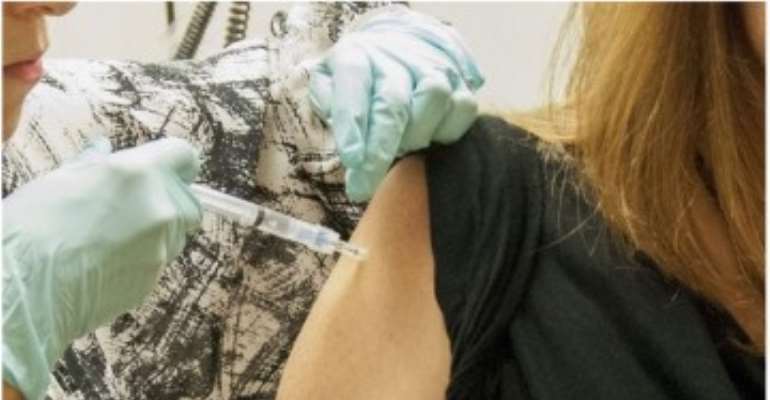Troubling report on foreign donor funds – Punch

UNABASHEDLY, government officials have transferred their malfeasance in handling public finances to the utilisation of funds provided by Global Alliance for Vaccines and Immunisation, for the procurement of vaccines for immunisation against child-killer diseases. After its cash audit of the $165 million it had given to Nigeria from 2011 to March 2014, GAVI, in its recent report, found the Federal Ministry of Health and National Primary Health Care Development Agency wanting. In a move that confirmed the abuse of the funds, the Federal Government immediately agreed to refund $2.2 million to the donor, according to the report. To clear the shame, the crooks in the system that smeared the country's image must also be fished out and punished.
But the rot could be much deeper as GAVI's observation came just from preliminary findings. It says that it will 'undertake a full-scale external audit to cover select, high-risk expenditures in prior years, and other expenditures in the period 2011 to 2014,' just as it has invited the Economic and Financial Crimes Commission to carry out a detailed investigation into the scam.
Consequently, cash-based support to Nigeria has been withdrawn since April; and funds already disbursed but which have yet to be utilised, reclaimed. Nigeria's health officials are now being treated as pariahs as they have been sidetracked in the implementation of GAVI's programmes.
The report pulls no punches. It states, 'To ensure that children will continue to benefit from vital immunisation activities despite these necessary measures, GAVI has asked UNICEF Nigeria to oversee the implementation of a limited number of activities that are deemed critical to routine immunisation and health system strengthening.' This is regrettable.
Apart from GAVI, many global bodies such as the World Health Organisation, UNICEF, US Centres for Disease Control, Bill and Melinda Gates Foundation and Rotary International help in shouldering Nigeria's heavy disease burden, which includes malaria, polio, HIV/AIDS, cholera, tuberculosis, among others, through donor support. Unfortunately, as Oyewale Tomori, a noted virologist, once said, 'It is lamentable that a country like Senegal is also one of the countries producing vaccines for us' because we cannot manufacture common reagents.
Nigeria, Afghanistan and Pakistan are the countries in the world still with the worst cases of these debilitating diseases, especially the polio epidemic. Though, only six cases have been recorded in two states in the country so far in 2014, as against 48 cases in nine states in 2013, the polio crisis is far from being over.
Enamoured of this steady decline, Onyebuchi Chukwu, until recently, the Minister of Health, said in April that the country would eradicate the polio virus by the end of the year. 'We will meet the target this year…,' he boasted as Ryuichi Shoji, the Japanese Ambassador to Nigeria, visited him in his office. As a result, Nigeria is exploring the possibility of securing another dubious $85 million loan from Japan.
The GAVI $2.2 million abuse is just the latest in a cocktail of plundering of health donor funds in Nigeria by both public officials and non-governmental organisations. Indeed, many Western donors and analysts argue these days that they might as well flush their cash away or burn it, given the appalling levels of corruption in the country. Who can blame them? In 2010, malaria grant suffered the same fate; while accountability questions have considerably attenuated donor funding for HIV/AIDS campaigns. Donors operate a corruption-free template in the use of their funds. This is why the GAVI report emphasised, 'Remediation of the identified weaknesses will need to be undertaken before disbursements can start again.'
Elsewhere, such violation is not swept under the carpet. In Uganda, for instance, the abuse of €430 million for humanitarian projects in 2005 provoked President Yoweri Museveni into action. He ordered a Judicial Commission of Enquiry into the mismanagement of the Global Fund to fight AIDS, malaria and tuberculosis. A White Paper that followed directed the Directorate of Public Prosecution to swing into action. And in no time, two culprits were sentenced to five and 10 years in prison.
Applauding Uganda's action, Richard Alderman, Director of Serious Fraud Office, an NGO, said, 'It is particularly gratifying to see that corruption that endangers the lives of some of the most disadvantaged in our global society is being rooted out.' But will GAVI and others ever speak the same of Nigeria? The prospect appears slim, given the tepid approach of our anti-graft bodies to pursuing the corruption cases before them.
The picture that emerges from the GAVI report deepens the incredible shame of a government that is already notorious for mind-boggling corrupt practices. Nevertheless, the only redeeming cause of action open to government is to prove sceptics wrong by ensuring that the scammers are brought to book. The country must win back the confidence of the donor agencies the way Uganda did; and by so doing, safeguard the lives of its children.
Polio, the nemesis of many a child in Nigeria, especially in the North, is so deleterious that WHO sees just one case in a country as bad news. In spite of the fact that only three countries remain in the hell-hole of the disease, global leaders and philanthropists held a summit in Abu Dhabi, United Arab Emirates in April 2013, where $5.5 billion was put forward for a polio-free world in the next six years.
President Goodluck Jonathan, this GAVI mess must be cleaned without further delay.
